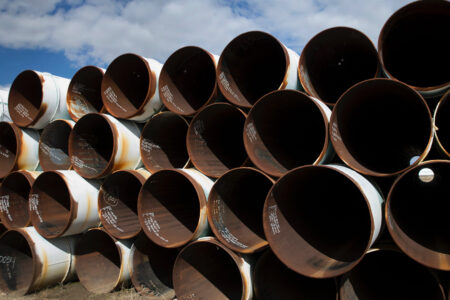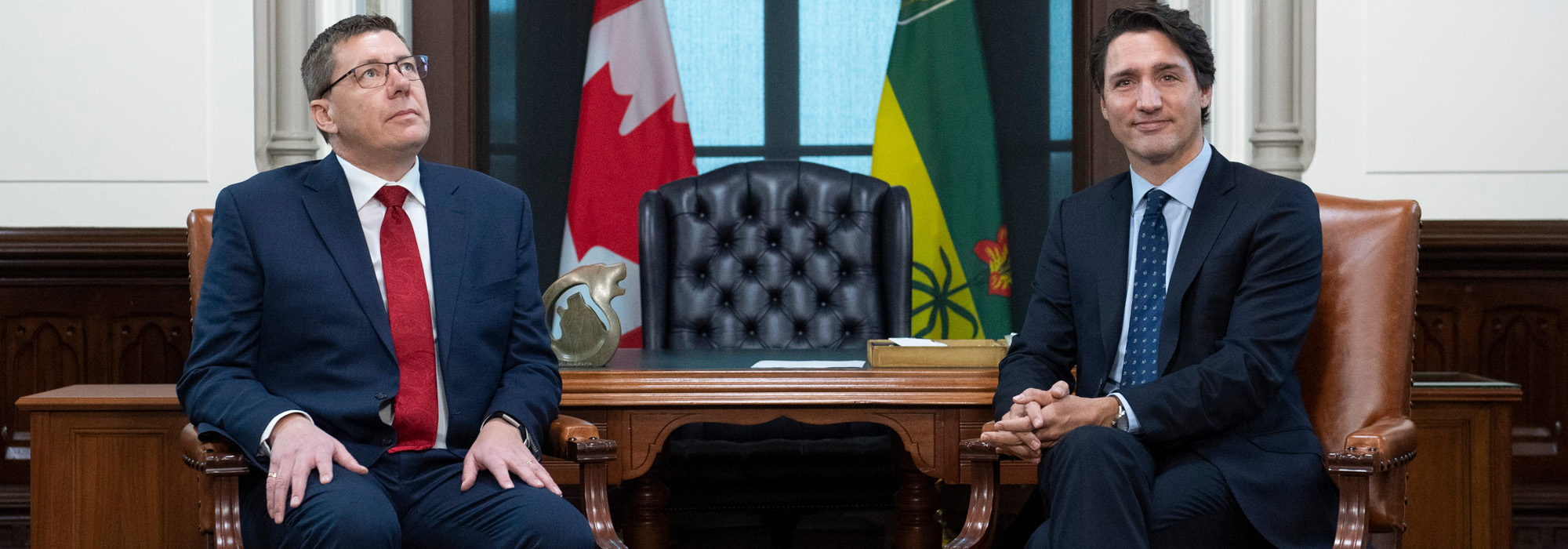
A national accommodation on climate change and carbon pricing is staring us in the face. Irony of ironies, it is three western, conservative premiers who are pointing the way forward.
Alberta Premier Jason Kenney surprised some by just announcing a policy of regulating industrial carbon emissions, including from the oil and gas sector, that is more extensive and meaningful than anticipated. Topping it off is a $30-per-tonne price on carbon emissions.
Saskatchewan Premier Scott Moe softened his initial post-election rhetoric, demanding the re-elected Liberals scrap their carbon tax, with a call a few days later to simply “pause” it.
Manitoba Premier Brian Pallister, who in early November called for the federal government to take a unifying approach to climate action, has pointed in the same direction as Kenney and Moe for two years now, insisting that a flat carbon levy — proposed as part of his Made-in-Manitoba Climate and Green Plan — should be honoured by Ottawa.
Each of these western premiers has set out the basics of a way to bring the country together on carbon pricing at this critical juncture. It is disarmingly simple: cap the tax at $30 per tonne next year and until the planned first ministers’ review is completed in 2022.
Under the federal carbon pricing regime, all provinces must have an economy-wide carbon pricing mechanism of either a carbon tax or a cap-and-trade system. That is the benchmark. A rising federal carbon tax – the backstop – will be implemented in provinces that do not meet the benchmark. That carbon tax is set at $20 per tonne for 2019; it rises next year to $30 per tonne, then to $40 per tonne in 2021 and settles at $50 per tonne in 2022. Under the Pan-Canadian Framework on Clean Growth and Climate Change, a formal review of the whole carbon pollution pricing system is to be completed by “early 2022.”
Capping the tax would meet Pallister’s flat levy prescription for Manitoba; it would match Kenney’s industrial emissions price; and it would fit Moe’s call for a “pause.”
Each western premier could claim vindication for his policy. The federal government could show it is listening to western Canada. A cap would cement the role of carbon pricing as a legitimate tool for reducing carbon emissions in Canada and reinvigorate the Pan-Canadian Framework as a true intergovernmental collaborative agreement. The carbon tax on consumers would remain intact — but flat at $30 per tonne — for the next two or three years at least. Any province that wanted to go higher could do so. But it would not be forced to.
What’s standing in the way of doing this? Ottawa and Alberta would have to find concurrence on “equivalency” over Kenney’s new industrial emissions regulations in meeting the federal government’s preferred performance standards. But Ottawa and Saskatchewan mostly did so already, so the template exists and Alberta’s proposed Technology Innovation and Emissions Reduction regulations offer real similarities to the federal backstop.
The federal government would have to accept some variations in climate and carbon approaches by the three provinces. But it is already doing so in several other provinces. Nova Scotia has an equivalency agreement based on its electricity system, for example.
This strategy would alter the nature of Canada’s current climate debate from a negative focus on price stringency to a positive focus on outcomes: actual GHG reduction results. This fits neatly with the Liberals’ campaign promise to create an independent expert panel to help Parliament set five-year GHG reduction goals — emulating an approach already in use by Manitoba. It also fits with a pivot announced by Ottawa toward a 2050 net-zero emissions goal, as a successor to the Paris 2030 targets.
What about the legal challenges soon to be heard by the Supreme Court? Right now, the federal government is on track to win legal affirmation that it has the constitutional authority to impose its carbon tax plan. A negotiated response would be in the interests of Alberta, Saskatchewan and Manitoba, plus Ontario.
Still, this proposed flat $30 carbon price “pause” fits here too. No jurisdiction would necessarily have to stand down on its respective legal challenges, as the core issue of constitutionality could still be heard by the Supreme Court for later guidance. An explicit statement to that effect could be crafted and agreed to by all governments involved.
As for the other provinces, neither New Brunswick nor Ontario would have any reason to object to a compromise agreed to by these western premiers. Both provinces are subject to the federal backstop and have Conservative governments in place.
To achieve this outcome, both water and wine would have to be served in equal measures at any First Ministers’ Meeting. But if all parties are truly seeking a way forward that helps take the political temperature down (not to mention the climate’s), the pause could be the basis of that compromise.
The best way to diminish political alienation is to secure policy accommodation. Sometimes it emerges from the unlikeliest of sources. Prime Minister Justin Trudeau just has to reach out.
Photo: Prime Minister Justin Trudeau and Premier of Saskatchewan Scott Moe wait for media to leave the office after a photo op on Parliament Hill in Ottawa, on Nov. 12, 2019. THE CANADIAN PRESS/Justin Tang
Do you have something to say about the article you just read? Be part of the Policy Options discussion, and send in your own submission. Here is a link on how to do it. | Souhaitez-vous réagir à cet article ? Joignez-vous aux débats d’Options politiques et soumettez-nous votre texte en suivant ces directives.









